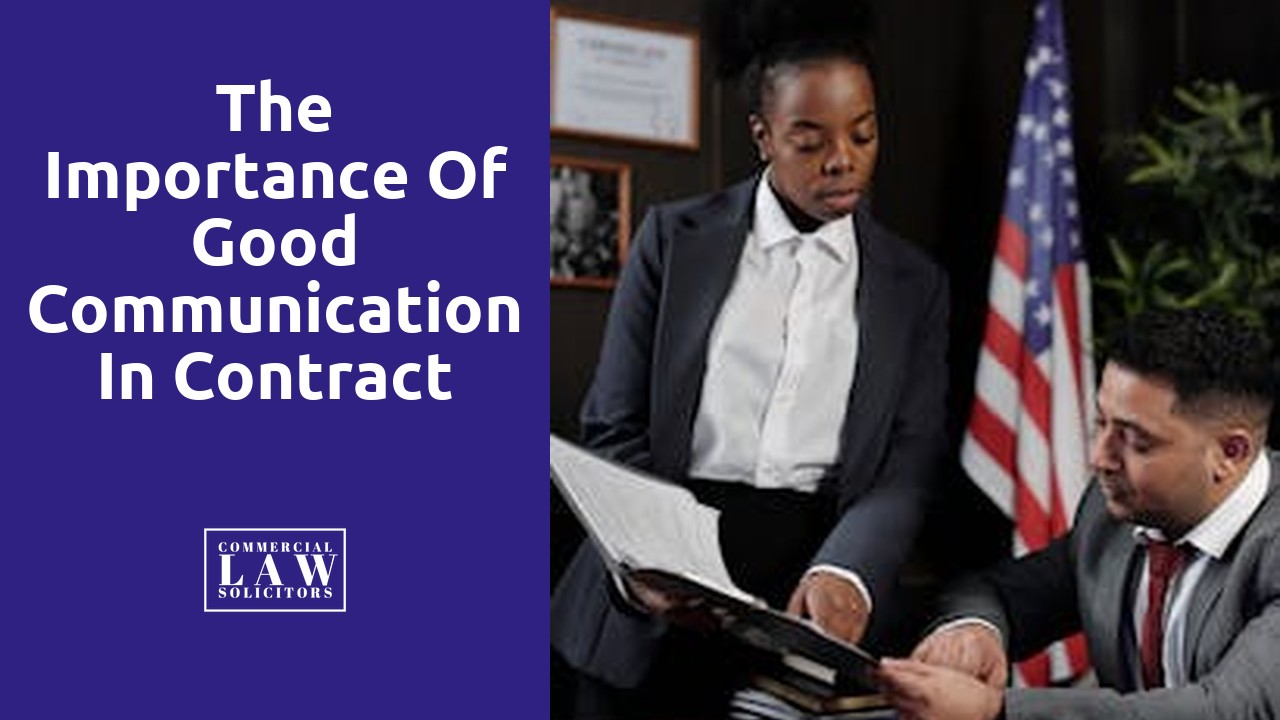
At the core of this intersection lies the concept of disruption. Innovation disrupts existing market norms and conventions, challenging established players and paving the way for new entrants. Market dynamics, on the other hand, respond to consumer preferences, economic conditions, and regulatory changes, determining the demand and supply dynamics within industries. The interplay between these factors creates a cycle of innovation, where companies strive to create new and improved products and services that meet the evolving needs of customers, while market dynamics force them to constOne key aspect of effective communication in contract negotiation is the ability to clearly articulate one's goals and objectives. When parties have a strong understanding of what they hope to achieve through the negotiation process, they can communicate their needs more effectively and work towards finding common ground. Additionally, effective communication allows parties to clearly express any concerns or issues they may have, ensuring that these are addressed and mitigated before the contract is finalized. By fostering open and honest communication, parties can build trust and establish a solid foundation for successful contract negotiations.antly analyze and adapt to changing conditions. This symbiotic relationship between innovation and market dynamics is what drives progress and propels industries forward.
Enhancing Your Contract Negotiation Skills: The Power of CommunicationThe Evolving Landscape of Intellectual Property Rights
One of the key aspects in promoting fair competition in the digital era is the effective enforcement of antitrust laws. These laws play a critical role in preventing anti-competitive behavior and ensuring that no single company monopolizes a particular market. The enforcement of antitrust laws helps to create a competitive environment where multiple players can thrive and consumers have a wide range of choices. Additionally, antitrust enforcement can also spur innovation by encouraging companies to constantly improve their offerings and stay ahead of the competition. However, enforcing antitrust laws in the digital era can be challenging, as many of these new technologies operate in global markets and may not fit neatly into existing regulations. Thus, it becomes necessary to adapt and evolve antitrust laws to effectively In addition to verbal communication, nonverbal cues also play a significant role in contract negotiation. Body language, facial expressions, and gestures can provide valuable insight into the other party's thoughts and emotions. Being able to interpret and respond to these nonverbal cues can help you adapt your communication style and approach accordingly. Furthermore, maintaining a professional and diplomatic tone throughout the negotiation process is key to creating a positive and productive atmosphere. It is important to remain calm and composed, even when facing challenges or disagreements, as this can contribute to constructive dialogue and resolution. Mastering the art of communication takes time and practice, but its impact on successful contract negotiation cannot be overstated.tackle issues specific to the digital landscape.
Building Stronger Contracts: The Role of Communication in NegotiationProtecting Innovators: A Look into Legal Safeguards
A successful contract negotiation requires effective communication skills to build stronger contracts. Communication plays a pivotal role in the negotiation process, enabling parties to understand each other's needs, concerns, and expectations. During contract negotiations, the ability to clearly articulate ideas, actively listen, and find common ground is crucial.In the fast-paced world of innovation, legal safeguards play a crucial role in protecting the rights of inventors and innovators. These safeguards provide a framework to ensure that the creative efforts of individuals and organizations are recognized, supported, and rewarded. By establishing a system of intellectual property rights, patents, trademarks, and copyrights, innovators can protect their ideas and investment, fostering an environment that encourages further innovation and economic growth.
Negotiating International Contracts: Cultural ConsiderationsCompetition Law Compliance Training: Ensuring Best Practices in Business
Tips for Negotiating Contracts in a Competitive MarketChallenging Anti-Competitive Behavior: Legal Options for Businesses
Key Elements to Consider in Contract NegotiationCompetition Law Investigations: Steps for Businesses to Take
Role of Lawyers in Contract NegotiationMerger Control: Navigating the Competition Law Landscape
Common Challenges in Contract Negotiation and How to Overcome ThemCompliance with Competition Law: Key Considerations for Businesses
Prohibited Practices under Competition Law: What Businesses